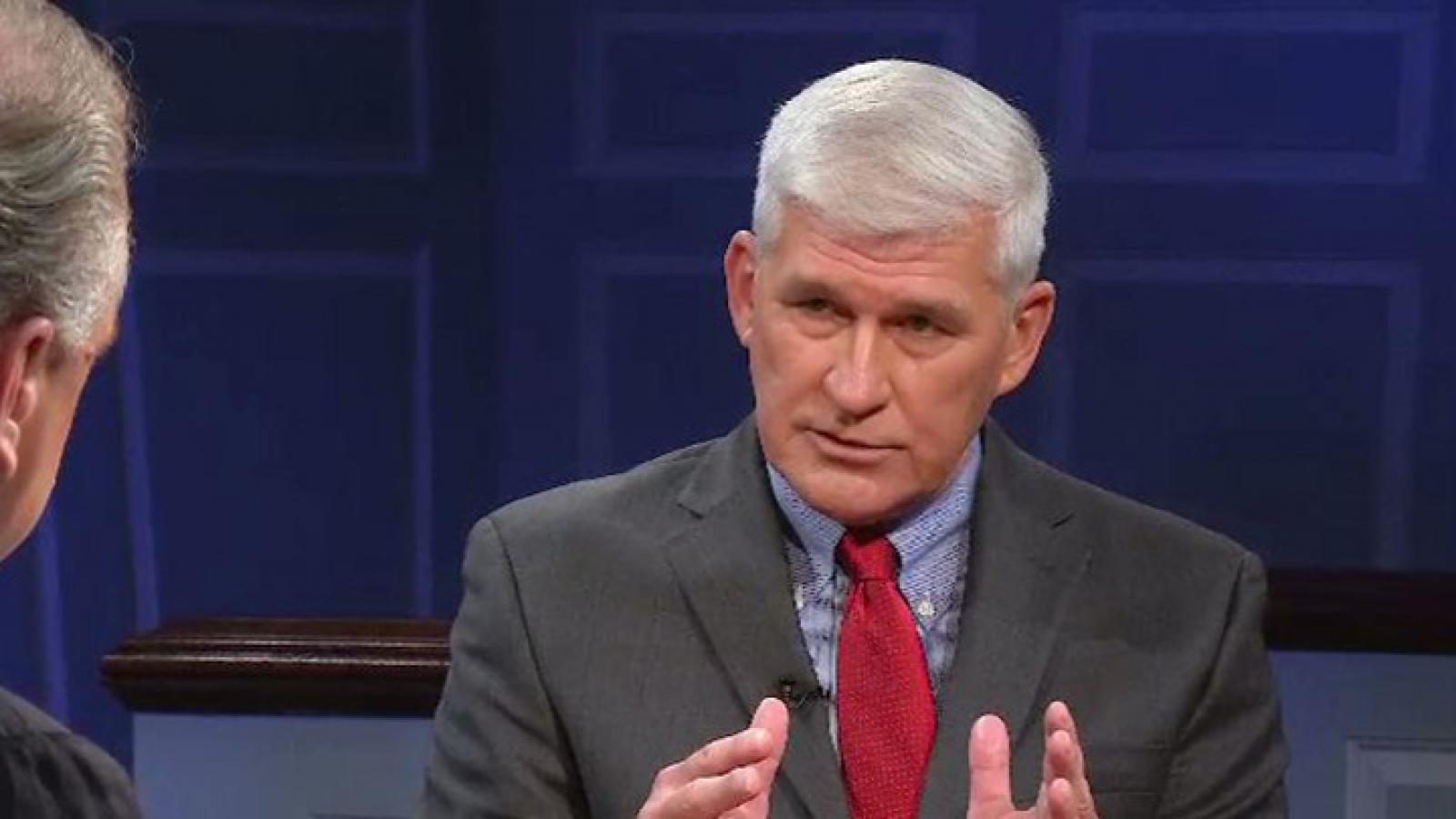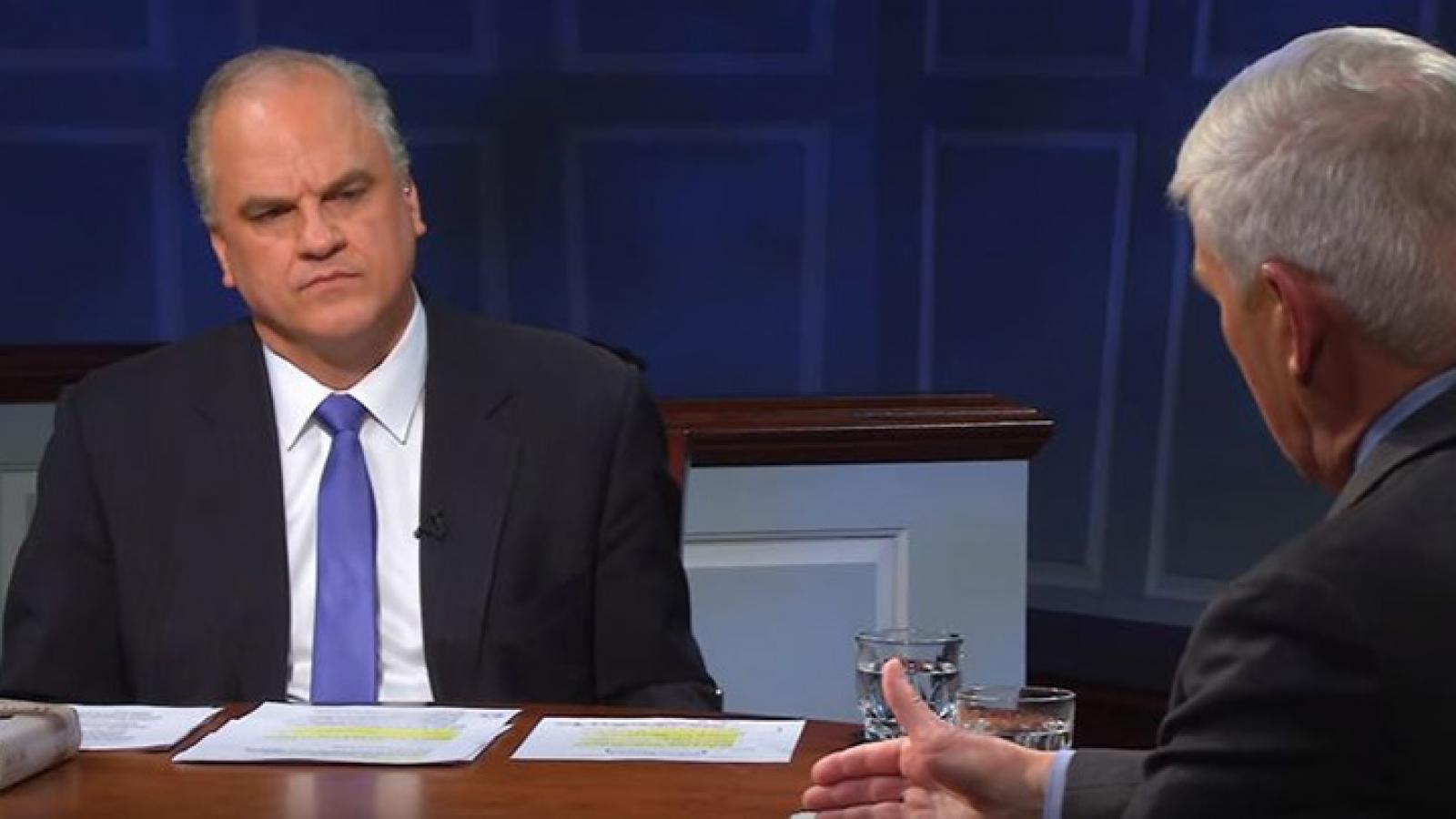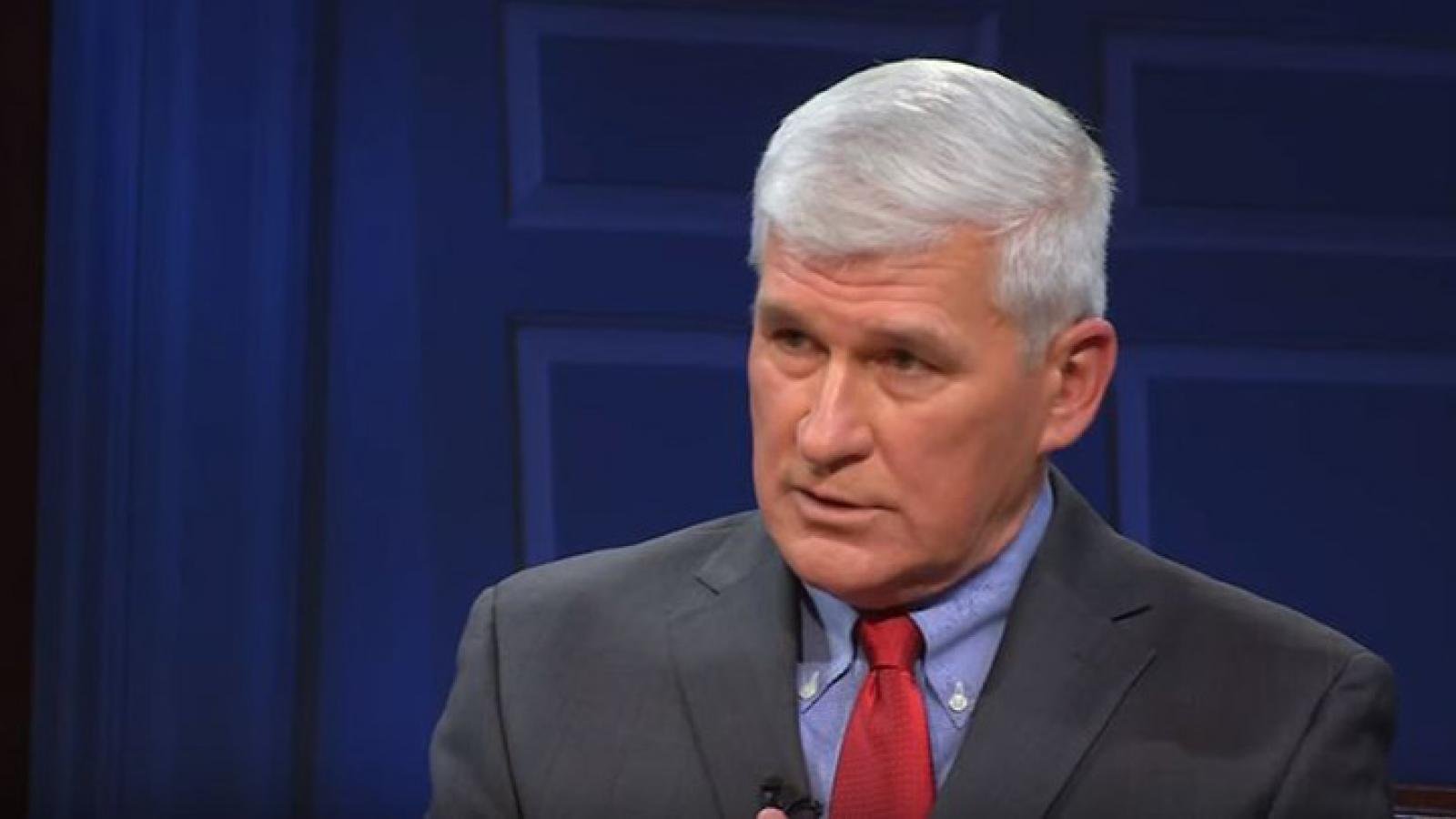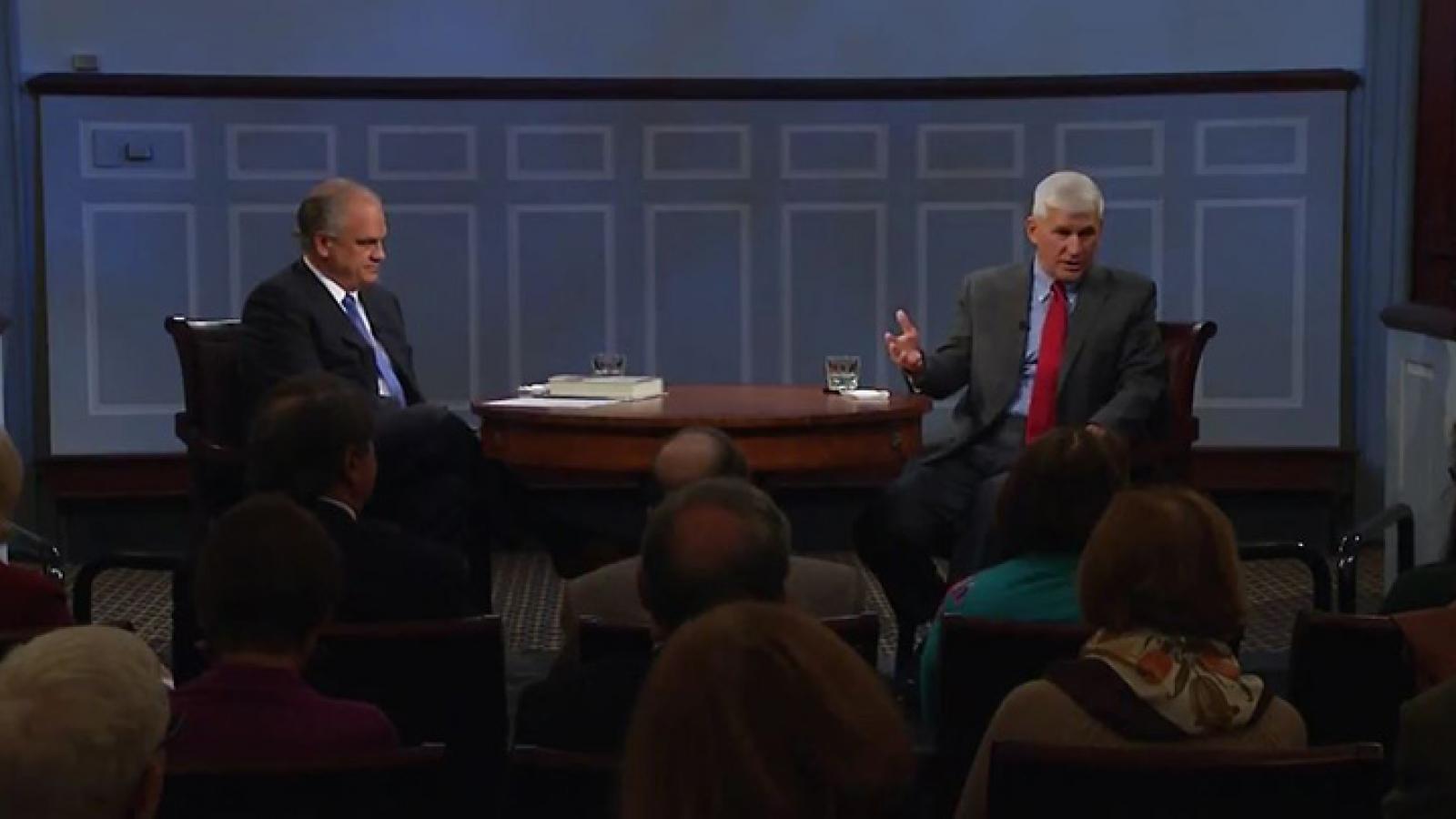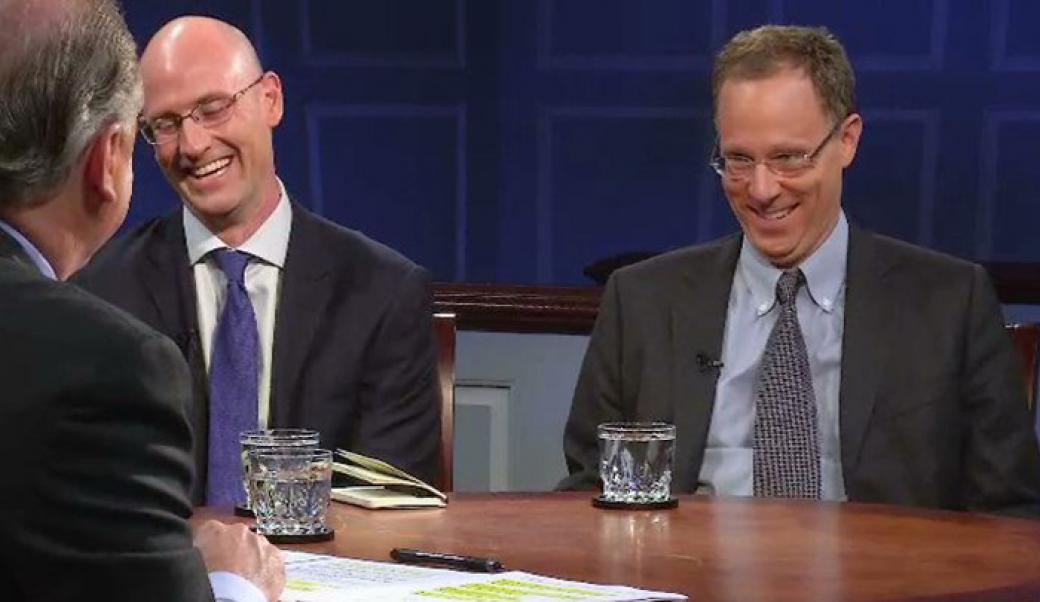About this episode
June 03, 2016
Andrew Bacevich
From the end of World War II until 1980, virtually no American soldiers were killed in action while serving in the greater Middle East. Since 1990, virtually no American soldiers have been killed in action anywhere else. What caused this shift? Andrew J. Bacevich, one of the country’s most respected voices on foreign affairs, offers an incisive critical history of this ongoing military enterprise—now more than thirty years old and with no end in sight.
Middle East
Endless war for the Middle East
Transcript
0:41 Doug Blackmon: Welcome back to American Forum. I’m Doug Blackmon. In this episode we return to our special series, Aftermath of the Endless War. Nearly 15 years have passes since the 9/11 attacks. Thousands of fighters and civilians have died in the Middle East and Afghanistan. Billions of dollars have been consumed and now thousands of American men and women have returned home and moved on with their lives. But the war they fought and the larger conflict beneath it is anything but over. And America is just beginning what is likely to be decades of introspection about the consequences of U.S. military strategy in this era not unlike the slow reconsideration of Vietnam that started more than a decade after the end of that conflict. In this series of American Forum episodes, we’ve talked with high level strategists, diplomats, commanders and soldiers who were fighting on the ground, experts on Islamic fundamentalism and terrorism and suicide in the military and many others. Our guest today is one of the most remarkable voices of our time. Andrew Bacevich was a career soldier and officer, a West Point graduate and served in Vietnam and in the Persian Gulf. Now an historian and a bestselling author of many books. He’s also the father of a soldier lost in Iraq. Today he is one of the fiercest critics of U.S. military strategy in recent years and more broadly what he perceives to be a deep and profoundly disturbing transformation of American values. His most recent book is America’s War for the Greater Middle East. Thank you for being here.
FACTOID: The Question: has U.S. Gained Anything in Middle East Wars?
Andrew Bacevich: Thanks for having me on.
2:17 Blackmon: Your book’s just been published and the title America’s War for the Greater Middle. Your title suggests that you perceive this as a very different kind of conflict.
Bacevich: Yes. I think to begin with I think the war began in 1980. The war did not begin in the wake of 9/11.
FACTOID: U.S. provided covert aid to Iraq early in Iran-Iraq war of 1980-1988
That is to say that beginning in 1980 the U.S. has been involved in what has become a vast and ambitious military enterprise undertaken with the expectation and through the adroit use of military power, somehow or other we can shape or determine the course of events in a very large part of the Islamic world. I think Americans are generally aware of military activity in the region preceding 9/11. They recall peacekeepers dying in Lebanon. They recall early dustups with Muammar Gaddafi all the way back to the Reagan era. They recall U.S. involvement in the, in the Afghanistan war of 1980 to 1988.
FACTOID: U.S. led international peace effort in Lebanon after Israeli invasion
FACTOID: U.S.S.R. invaded Afghanistan in effort to influence ongoing civil war
But I think most Americans tend to think of these as disparate disconnected events. I’m arguing that it is a war. That all the events connect or perhaps to put it in another way by connecting the events we can have a clear understanding of what we are trying to do and a clear understanding of the extent of our failure.
3:57 Blackmon: But by positioning this war over this long period of time you’re also acknowledging that the war, a war that we also perceive in its first phases as having been overwhelming about Israel, but that today we perceive as having much less to do with Israel, whether it does or not. But you wed together two eras of conflict that Americans also I think see, in the past have seen rather differently. But so how does the, the traditional struggle over Israel and the current struggle over ISIS and al-Qaeda and contemporary terrorism, how do these two things match up?
Bacevich: I think that to think that the tendency for U.S. military policy has been driven by concerns about Israel is vastly overstated. Let’s cite a specific example. One of the earliest, a U.S. military intervention in the region post 1980 when I begin my story was Ronald Reagan sending peacekeepers to Lebanon. Well we sent peacekeepers to Lebanon by no means to ah help the state of Israel. We sent peacekeepers to Lebanon in response to ah, an ill-advised and reckless ah Israeli invasion of southern Lebanon that had helped to create a civil war led to vast suffering on the part of the Lebanese. Ronald Reagan imagined falsely, foolishly imagined that the presence of a reinforced marine battalion was going to somehow ah bring an end to the violence. Instead all he ended up doing is basically making those marines targets. And we lost 241 in a single day. So, so Israel is part of the story. Israel is an important part of our politics.
FACTOID: October 1983: 241 Americans killed at marine compound in Beirut
But U.S. policy in the region, particularly military policy, has not been driven by ah concern for Israel. It’s been driven initially, I mean this, this war began as a war for oil. Jimmy Carter promulgated the Carter Doctrine in 1980 which designated the Persian Gulf of vital U.S. national security interests in lay persons’ terms. Now a place that we would fight for. That declaration initiated the process of militarizing U.S. policy more broadly in the region. But I think crucially, from the very outset the stakes went beyond simply oil. I think in a very fundamental sense this has been a war to sustain the proposition that the U.S. is a nation which need not admit or accept limits. That we are the indispensable nation. That American exceptionalism is a fundamental reality or truth that shapes our behavior. Events in the region have tended to suggest that maybe there are some limits. Maybe we aren’t exceptional. Maybe we don’t call the tune around the world. And we’ve been pushing back against those realities for now going on four decades.
7:09 Blackmon: What would you say to someone who would suggest that yes it has gone very badly. You know, and we accept that how things have turned out especially in Iraq and Afghanistan is very unfortunate. Ah, but in the end this is, this has been a conflict that while we made mistakes the folks on the other side have done such worse things. Ultimately we still hold the moral high ground in all of this and ultimately this has been a quest to defend American values in some sense.
FACTOID: U.S. casualties exceed 6,880 in Iraq and Afghanistan conflicts
Bacevich: Well I’d say to that, I’d say to that person we probably disagree on what those values are or should be. But, but, but to the point, ah if this is in some senses a war to defend values that we hold dear, that does not obviate the need to evaluate the war’s progress. Ah, my argument is that this war that’s been going on now for close to four decades, it hasn’t been won. Ah, it doesn’t appear to me that we’re winning. Doesn’t appear to me that conditions in the region are better than they were before U.S. forces ah began to ah intervene. Ah, and therefore there is a pragmatic requirement to evaluate the course of the war? Is it that if we just try a little bit harder we’re going to get different results? Ah, try a lot harder? Ah, send far larger forces? Ah, then, then let’s talk about that. My own judgment is that trying harder is not the answer. And that recognizing the failure of America’s war in the Greater Middle East is a precondition to having a serious policy debate over what the alternatives to open ended war might be.
FACTOID: Currently about 5,000 U.S. troops in Iraq, 11,000 in Afghanistan
One of the things I think is so regrettable about the current political climate and in particular the state of discourse in the presidential campaign is that there is a remarkable absence of willingness to consider possible alternatives. There’s no discussion of that. On the contrary, most of the candidates are insistent that if we just bear down on ISIS, defining the problem simply as ISIS, if we bear down on ISIS that somehow or other that’s going to solve the problem. And I think, I think there’s no evidence in history to suggest that.
9:42 Blackmon: While it makes sense to me that we connect together all of these separate conflicts, but does that mean that the whole question over ah was President Bush in error to have launched the invasion of Iraq? Does this absolve him to some degree of the gravity of that decision since you’re positing this was a continuation of a much longer war? Or is it essentially that each of these presidents bears a similar sort of weight of having restarted or extended the conflict?
Bacevich: Well I mean George W. Bush’s decision to invade Iraq in 2003 was in a sense uniquely reckless. And he deserves to be indicted by history for that decision. But that said, um, I believe that the continuity between one administration to the next with regard to the prosecution to this war are actually more important than the discontinuities. It is absolutely true that from one administration to the next priorities shift, the techniques change. George W. Bush believed invade, occupy, transform. That was the, that’s what he attempted to do particularly in Iraq. Barack Obama doesn’t believe in invading and occupying countries. He’s learned from Bush’s failures that that’s a lousy approach. But Barrack Obama has now placed greater emphasis on the use of drones as instruments of assassination, a greater emphasis on using special operations forces. Once again waging war through proxies by using U.S. forces as trainers and advisers. So it’s important. It’s interesting to acknowledge that the Obama approach differs from the George W. Bush approach. But I think it’s more important and indeed more interesting to note that Barack Obama has continued the war for the Greater Middle East that he inherited from George W. Bush and that George W. Bush had inherited from Bill Clinton and so on.
11:50 Blackmon: How then does a president escape the trap that has been put in place by this long sequence of prior presidents?
Bacevich: Well I mean the, the fact that the war drags on despite the absence of success I think is one indication of the presidents, this person that we refer to as the most powerful man in the world may well be most powerful woman, the continuities suggest that that power is actually quite limited. Presidents are a prisoner of circumstance. Some of the circumstances relate to domestic politics. Other circumstances relate to the world beyond America’s borders which is not nearly as plastic as ah as some presidents and many commentators seem to, seem to assume. Think about the range of methods that we have employed. Rely on shock and awe, invade and occupy, counterinsurgency, counter terrorism, humanitarian intervention, peacekeeping, on and on. An enormous range of experimentation all driven by the expectation that somehow or other the adroit use of American military power is going to fix things. And to take on board the range of efforts over this long period of time seems to me necessarily leads you to the conclusion that American military power will not correct a dysfunction that is prevalent in the Islamic world and in many parts of the Islamic world, I need to be careful of my phrasing there, and that therefore the war for the Greater Middle East is an act of folly.
13:42 Blackmon: In the period of the Cold War there was obviously a kind of discipline that the Cold War itself and the existential threat of the nature of it imposed on the way that on the kinds of conflicts that the United States might decide to engage in. It also, I would venture, have a kind of disciplining effect on the politics of America. That the stakes were obviously so high that it was difficult for people to be completely dismissive of a president from whatever party or the importance of that position in these decisions
Bacevich: Let’s think about the role of military power during the Cold War. It was not primarily an instrument to be employed to bring about change in the adversary’s camp. We never invaded Poland in order to liberate Poland from Soviet occupation. The principal role of American military power was to contain and to deter and to defend. Now we made some humongous mistakes not least of all the Vietnam War. But by and large military power was a instrument to be husbanded. To be held in abeyance. That changed with the end of the Cold War, with the end of the Cold War, with the absence, now with the Soviets taken off the board, people in Washington in the national security business began to fantasize about putting American military power to work. To use it as an instrument to promote change that we favored whether for geopolitical purposes or to try to promote American values. And the Greater Middle East had been the venue for this experiment, using force to bring about change. And as I put the narrative together it’s pretty close, pretty clear rather that we haven’t produced the kind of change that we wanted. I think this is an important point to acknowledge. In many respects we’ve made things worse. ISIS would not exist today were it not for the fact that the United States invaded Iraq back in two thousand and three. So I intend this to be a history book but it is a history book that has policy implications. And the most important of those policy implications is we will never be able to think more creatively about what kind of policy we should be pursuing in this part of the world or elsewhere unless we are willing to surrender these fantasies about what American military supremacy supposedly can accomplish.
16:30 Blackmon: And so where would that leave us if another 9/11 or something much worse than 9/11 were to occur today?
Bacevich: Why did 9/11 happen? How, how did it happen that 19 thugs with box cutters were able to inflict that amount of damage to our country? The answer is not that we were insufficiently active militarily in the Islamic world. The answer is that the agencies responsible for maintaining domestic security in this country utterly, totally, and completely failed. They let us down. So the way to prevent another 9/11, the first, the first line of defense is the defense of this country to ensure that domestic security agencies are effectively led and properly resourced. That’s not going to guarantee that there will never be a terrorist attack. But that’s the way we minimize the likelihood of terrorists inflicting anything like that damage. So so ah defend yourself, it seems to me is the lock your front door is the first and perhaps the most act you can take to prevent the robber who’s stealing the family’s silverware.
FACTOID: Since 9/11, the U.S. has spent about $800 billion on security
17:52 Blackmon: Had the error of the invasion of Iraq not occurred, had if we could rewrite history slightly and say that there was the action in Afghanistan, there was the toppling of the Taliban, there was eventually the tracking down and killing of Osama bin Laden but there had never been what had happened in Iraq, would we look back on all of this as a significantly more successful sequence of events?
BachevichIn the Greater Middle East we’re faced with two problems. One problem is terrorist organizations; al-Qaeda is an example. ISIS is an example. Ah, what’s the best way of attacking a terrorist organization? Not invading a country. Ah, the best way is to mobilize an effective international police action to root out and destroy the terrorist organization. That’s what we should have done. That should have been the response to al-Qaeda in the wake of 9/11. And indeed there were people, not me, there were people in the wake of 9/11 who said that waging a global war on terrorism makes no sense. That waging war on terrorism is a losing effort. That al-Qaeda certainly was a menace to international peace and security and an international police effort would have been the appropriate response. So there were people who made that point at the time. But the second definition of the problem I think is that ah, is, is, is an ideological problem. That within the, within Islam, and I want to be careful not to somehow suggest that I think Islam is the problem, but within Islam there is a radical anti-western, violent ideology. And ultimately restoring order to this part of the world will require the eradication of that ideology. What’s the best way to do that? Well, I think in many respects I think the approach we’ve taken, the reckless use of American military power in introduction to the region actually fuels the ideology; doesn’t reduce it. I think the only way to reduce the ideology is to delegitimize it. To persuade young people living in the Islamic world that retreating into the 15th century actually is not in their interest.
20:25 Blackmon: So what do we do?
Bacevich: I think that there is a a need for a much greater historical consciousness. We’ve got an attention span in our politics that lasts about a week and a half and therefore there’s remarkable little capacity to take on board ah the events that have brought us to where we are today. Um, I wish I could give you a simple answer. And I think the beginning of wisdom is to recognize that the ah restoration of stability is going to have to be accomplished by nations in the region. Let’s take the threat posed by ISIS to illustrate the point I want to make. ISIS does not pose an existential threat to the United States of America. ISIS doesn’t have an air force, doesn’t have a navy, doesn’t have any significant resource base, doesn’t have any allies. ISIS consists of what? Maybe 25 thousand fighters lightly armed on the other side of the world. ISIS does pose an existential threat to the countries in the region. To Iran, to Iraq, to Saudi Arabia. The whole notion of creating a caliphate assumes that those nation states will be erased. And I think the diplomatic task incumbent upon the United States is to persuade those nations to recognize that they share a common transcendent interest in destroying ISIS.
22:11 Blackmon: So if it were the case that shortly after the inauguration next year there was an opportunity for you to sit down with the new president and that new president said ah, Professor Bacevich tell me three things that I should most urgently, most concretely take under consideration or four or five whatever it might be, what would your answer to that new president be?
Bacevich: Well number one, I think I’d say Mr. President it’s clear that the 21st century is going to be an Asian century. That the prospects of having a avoiding the catastrophes of the 20th century will depend on our ability to orchestrate some modicum of stability in East Asia as these new powers like China and India take their place on the world stage. Ah, it’s not going to be easy to persuade China, Korea, India, Japan, the United States to learn to live with one another. Not in peace and harmony but at least coexistence. That is I think an urgent priority. The second priority is ah is climate change. I mean so far there’s been rhetoric, there’s been a great deal of, in a sense, public education so we’re far more aware of this threat than was the case even I think ten years ago but we need effective global action if we’re going to be able to dampen the effects of climate change. And then the third one I think would be this part of the world, the Greater Middle East where Mr. President, you need to acknowledge the failure of this war. Only if you are willing to acknowledge this military failure then is it going to be possible for you to begin a dialogue about alternative courses of action that might actually produce more positive results then, then everything that we have done up to this point.
24:06 Blackmon: Isn’t an acknowledgement of failure at specifically at war something of the scale of this war, is an acknowledgment of a failure something like that something that the American spirit can bear? Is that something that we’re capable of?
Bacevich: Well, ah I think so. I mean ultimately I think, there’s a few, there are some holdouts but I ultimately I think that we acknowledge that the Vietnam War was a failure and a mistake. Something we never should have initiated in the first place. I’m not positive that having acknowledged that failure that we necessarily learned all the right lessons. But we’ve acknowledged failures before and if nothing else I think it can have sort of a cleansing effect on our spirit.
24:55 Blackmon: Well yours is a clarion voice. It’s not one that everyone can comfortably bear or agree with ah, but ah gosh if only more voices like yours have been heard and listened to a little earlier date in time. Thank you very much for being here.
Bacevich: Thank you.
25:15 Blakmon: The book is America’s War for the Greater Middle East. We hope you’ll join this Forum of American Forum on the Miller Center Facebook page or by following us on Twitter @douglasblackmon or @americanforumTV. To send us a comment, watch other episodes, download podcasts, get a transcript or to read more about fresh approaches to the next president’s first year in office visit us at millercenter.org/americanforum I’m Doug Blackmon. See you next week.
